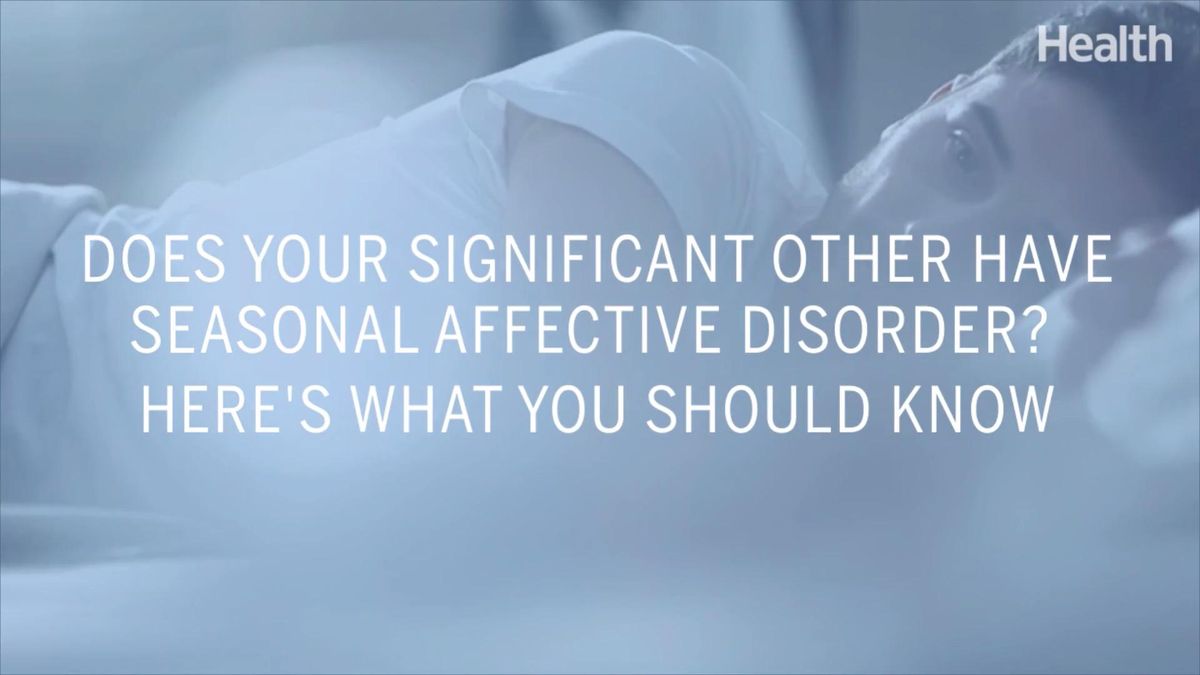The other day, a straw poll of my closest friends revealed the majority have been feeling groggier, more lethargic and generally "pretty crap" (as summarised by one particular friend) since the Mediterranean-style summer came to an abrupt halt and British weather returned to business-as-usual.
After temperatures in the late 30s were reached across the UK in July and August, the beginning of September has seen greyer skies, rain and conditions resuming to the cooler high teens and early 20s.
So, could the end of summer be behind this apparent change in mood? The answer is, of course, that it's not quite that simple. Below, we explore the relationship between the weather and how it makes us feel.
Positive associations with warmer weather could explain any post-summer low moods
Dr McLaren says we have to be careful when rushing to find an explanation for how we are feeling. For many of us, this might mean attributing the changing weather conditions to feeling low."Our brains have evolved as explaining machines and try very hard to find explanations for changes in how we feel, particularly if those changes are driven by internal brain changes," he notes.
He also suggests that the difference in moods, depending on weather scenario, could be down to how we view the weather. For example, if you're someone who loves summer because it's when you mainly see friends, plan activities and escape on holiday, it's unsurprising that you end up feeling lower when this ends."It depends on where you're coming from and what the extreme weather means to you and your sense of wellbeing," he explains. "A drought-stricken farmer will probably very relieved that the hot weather has broken. The ice cream salesman will see it differently."
Extreme weather has a proven negative impact on our well-being
According to Dr Paul McLaren, the medical director at the Priory's Hayes Grove Hospital, this collective melancholy is not an isolated phenomenon. Some patients with existing mental health conditions sometimes report their symptoms either worsening or improving because of the climate.
This is likely to be because extremes of weather can be very stressful and "stress can trigger mental illness", Dr McLaren explains. "It is much more stressful travelling home from work in an underground train when the temperature is 36 degrees than 16 degrees," for example. Similarly, extreme cold weather - such as last winter's infamous Beast from the East - could have an equally negative impact on one's well-being.
Stress is also understood to exacerbate a whole host of existing mental health conditions including depression, anxiety and obsessive compulsive disorder.
Seasonal Affective Disorder is a very real mental health condition
Seasonal affective disorder (also known as SAD) is a type of depression that comes and goes in a seasonal pattern, according to the NHS. An important thing to keep in mind is that feeling down when the air turns colder is not necessarily SAD. This is a very real mental health condition with symptoms that commonly occur in depression including persistent low moods, a loss of pleasure in normal activities, feeling irritable, tearfulness, feeling stressed and anxious, and low self-esteem. These symptoms usually start in the autumn or winter and improve in the spring.
The key thing about SAD is that while people who suffer with the condition have depressive states during the winter, rather than the summer, this is actually due to the days getting shorter and the consequential lack of sunlight rather than the cold weather.
"There isn't anything to suggest that prolonged warm weather can increase SAD as it's triggered by lack of sunshine, not heat," Dr Pablo Vandenabeele, the clinical director for mental health at BUPA UK, tells Harper's Bazaar, adding that one in five people in the UK are affected by SAD.
For anyone suffering from the condition, he recommends speaking to your GP who can recommend treatments ranging from light therapy and antidepressants to self-help.
"Although, you may not want to go outside in the depths of winter, it can really help combat SAD," he adds. "Wrap up warm and try to ensure that each day you continue to spend some time outside. All you need is for your hands and face to be exposed to the sun to help deal with the symptoms of SAD."
Following a balanced diet and exercising regularly can help. Ensuring your workplace and living environment have as much natural sunlight as possible is also important.
Weather phobia is rarer than SAD, but is still no joke
There are other mental health conditions linked to changing weather, including phobias. In fact, one in 10 Americans suffers from a fear of a certain weather type. There is the fear of extreme weather, like thunder and lightning (astraphobia), as well as weather phenomena like flooding and tornadoes. For people with these conditions, Dr McLaren says this weather can be "extremely distressing and stressful".
Further advice on how to access mental health services can be found on the NHS website, or from organisations like Mind.















